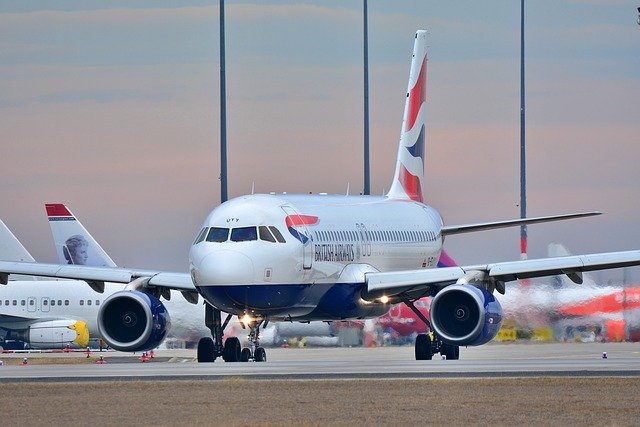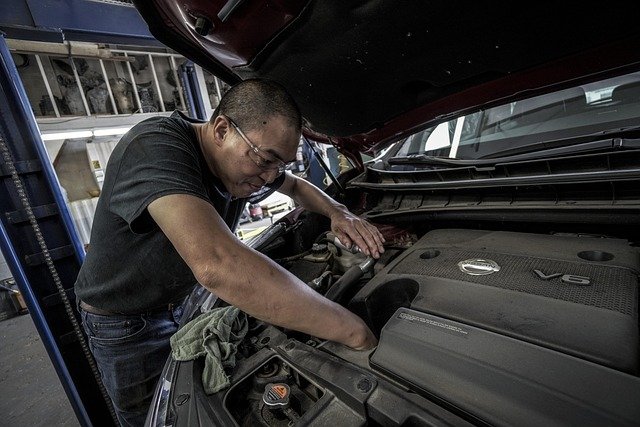Unlocking Aviation Career Pathways for English Speakers in the Netherlands
In the Netherlands, speaking English can significantly broaden career pathways in aviation, a sector that is expanding rapidly. As the demand for skilled professionals increases, understanding the various roles and the working conditions can provide valuable insights. This information may be particularly beneficial for individuals considering a future in this dynamic industry.

The aviation industry in the Netherlands represents a significant economic sector with substantial employment opportunities for professionals from diverse backgrounds. For English speakers looking to establish or advance their aviation careers in this Dutch landscape, the path is increasingly accessible. The Netherlands’ aviation ecosystem encompasses major international airports like Amsterdam Schiphol, regional facilities, airlines, maintenance organizations, and educational institutions—all with growing accommodation for English-speaking professionals. This comprehensive overview explores how English speakers can navigate training requirements, certification processes, and career pathways in the Dutch aviation sector.
Understanding Career Pathways in Aviation for English Speakers
The Netherlands offers several entry points for English speakers pursuing aviation careers. Flight training programs at schools like KLM Flight Academy and EPST (European Pilot Selection & Training) provide instruction in English, making them accessible to international students. Beyond pilot training, English speakers can pursue aircraft maintenance engineering through organizations like the Aircraft Maintenance & Training School, which offers EASA-compliant certification programs with English instruction.
Air traffic control, airport operations, and aviation management programs at institutions like the Dutch aviation college and Hogeschool van Amsterdam deliver specialized training with English options. Many of these programs maintain strong connections with industry partners, facilitating internship opportunities and job placement assistance for graduates regardless of Dutch language proficiency.
The Growing Demand for Skilled Professionals in the Netherlands
The Dutch aviation sector continues to experience workforce demands driven by several factors. Retirement waves among experienced aviation professionals have created significant gaps, particularly in specialized technical roles and pilot positions. Simultaneously, pre-pandemic growth patterns are gradually returning, with Schiphol Airport and regional facilities expanding operations and requiring additional personnel across multiple domains.
Particularly promising for English speakers is the international nature of aviation in the Netherlands. As a global transportation hub, Dutch aviation employers increasingly prioritize English proficiency over Dutch language skills, especially in technical and operational roles. This shift is further amplified by the presence of multinational aviation companies that have established regional headquarters or operational centers in the Netherlands, creating additional opportunities for English-speaking professionals with specialized expertise.
Key Roles and Conditions Within the Aviation Sector
The aviation industry offers diverse career paths beyond the cockpit. Commercial pilots remain in steady demand, with requirements typically including an ATPL (Airline Transport Pilot License), which can be obtained through flight schools in the Netherlands that offer instruction in English. Aircraft maintenance technicians and engineers are equally sought after, with EASA Part-66 licensing available through English-language training programs at Dutch technical institutes.
Air traffic controllers, while often requiring some Dutch language skills for certain positions, can find opportunities in international operations where English is the primary working language. Airport operations specialists, flight dispatchers, and aviation safety officers represent additional career paths where English-speaking professionals can thrive. The aviation management sector, encompassing roles in airline management, airport administration, and aviation consulting, particularly welcomes professionals with international backgrounds and English language skills.
Training Requirements and Certification Processes
Navigation through Dutch aviation training requirements involves understanding both European and national frameworks. For pilots, the European Union Aviation Safety Agency (EASA) standards govern licensing, with options ranging from Private Pilot License (PPL) to Commercial Pilot License (CPL) and ultimately Airline Transport Pilot License (ATPL). Flight schools in the Netherlands offer these programs in English, with training typically taking 18-24 months for an integrated ATPL program.
For maintenance professionals, EASA Part-66 certification is required, available through technical institutes offering English-language instruction. These programs typically combine classroom learning with practical training, ranging from 2-4 years depending on specialization. Air traffic control training through LVNL (Air Traffic Control the Netherlands) may require Dutch language skills for certain positions, but international operations roles often accommodate English speakers.
Certification recognition for professionals with existing qualifications from non-EU countries involves validation processes through the Dutch civil aviation authority (ILT). While some credentials transfer directly, others may require supplementary examinations or adaptation training to meet EASA standards.
Financial Considerations for Aviation Training
Aviation training represents a significant investment, with costs varying considerably based on the specific career path. Flight training programs in the Netherlands typically range from €70,000 to €130,000 for complete ATPL programs, making them among the most expensive aviation career options. Aircraft maintenance training programs generally cost between €8,000 and €25,000 depending on the certification level and program duration.
| Training Program | Provider | Approximate Cost (EUR) |
|---|---|---|
| Integrated ATPL | KLM Flight Academy | €120,000 - €130,000 |
| Integrated ATPL | EPST | €90,000 - €110,000 |
| Modular ATPL | Stella Aviation Academy | €70,000 - €85,000 |
| Aircraft Maintenance (B1/B2) | Aircraft Maintenance & Training School | €15,000 - €25,000 |
| Air Traffic Control | Entry Course LVNL | €8,000 - €12,000 |
| Aviation Management Bachelor’s | Hogeschool van Amsterdam | €2,000/year (EU) / €8,000/year (non-EU) |
Prices, rates, or cost estimates mentioned in this article are based on the latest available information but may change over time. Independent research is advised before making financial decisions.
Language Requirements and Support Systems
While the Netherlands boasts high English proficiency levels, understanding the language dynamics in the aviation sector is crucial. Technical roles like aircraft maintenance, flight operations, and specialized aviation functions typically operate in English due to international standards and documentation. Customer-facing positions at Dutch airports and airlines may require basic Dutch language skills, though many organizations provide language training support for international employees.
Aviation training programs increasingly offer dedicated support for international students, including English-language instruction, documentation, and examination options. Professional networks and industry associations like the Netherlands Association of Aviation Professionals provide valuable connections and resources for English-speaking professionals navigating the Dutch aviation landscape. Many employers also offer language training as part of professional development programs, helping international staff gradually develop Dutch language skills while working primarily in English environments.
The Netherlands’ aviation sector continues to evolve as a diverse, international environment where English speakers can build rewarding careers. Through appropriate training, certification, and professional networking, non-Dutch speakers can successfully navigate the industry landscape and contribute to this dynamic field. As global aviation continues its recovery and growth trajectory, the opportunities for skilled professionals—regardless of native language—will likely expand further in this strategically positioned European aviation hub.




